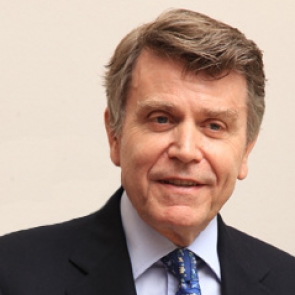Interview avec Thierry de Montbrial, fondateur et Président de IFRI, sur l'état du monde
October 18, 2019
Questions : 1/ Finalement, est-ce que nous vivons dans un monde sans boussole ? 2/ Quels sont les domaines des relations internationales dans lesquels le recul du multilatéralisme se fait-il le plus sentir ? 3/ Dans la guerre froide technologique qui les oppose, Américains et Chinois s’affrontent-ils à armes égales ? 4/ En matière de dissuasion et de non-prolifération nucléaire, vous considérez que le glas a sonné pour la maîtrise des armements. Quelles pourraient en être les conséquences pour l’équilibre mondial ? 5/ Au Sahel, le terrorisme se nourrit des conflits locaux. Le G5 Sahel est-il outillé pour faire face à cette extension ?
Speakers

Thierry de Montbrial
Fondateur et Président de l’Institut Français des Relations Internationales, Fondateur et Président de la World Policy Conference, et Membre de l’Académie des Sciences morales et politiques
Thierry de Montbrial a créé l'Institut français des relations internationales en 1979 dont il est le Président. ll dirige également le rapport annuel de l’Ifri, RAMSES, et la revue Politique Etrangère. En 2008, il a lancé la World Policy Conference.
Il est professeur émérite au Conservatoire National des Arts et Métiers. Il a été président du Centre franco-autrichien pour le rapprochement en Europe (1985-2015).
Thierry de Montbrial siège au Conseil de plusieurs institutions et entreprises internationales. Il est notamment membre du Conseil d'Administration du CNAM et Président de l’IAB du Groupe OCP (Maroc), membre du Conseil d’Administration de la Fondation Renault. Il a également été membre du Conseil consultatif auprès du Secrétaire général de l’O ...









